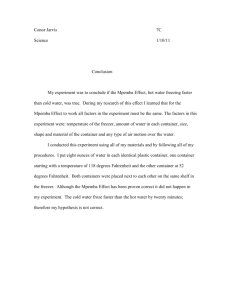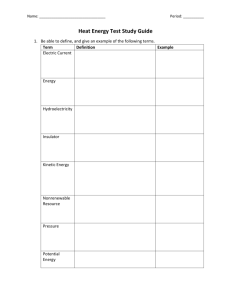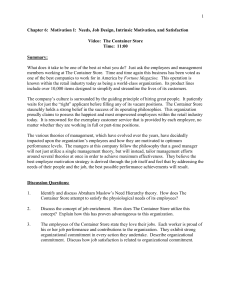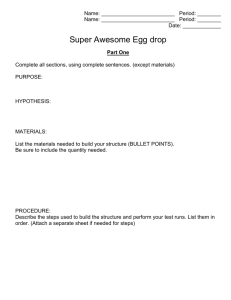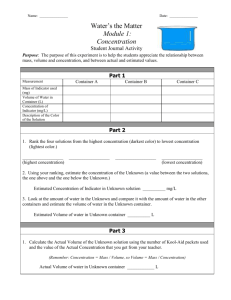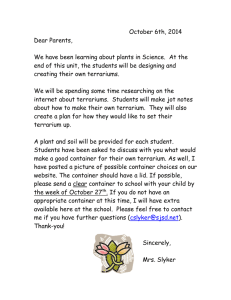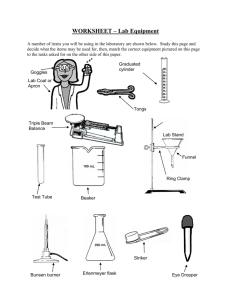Practice with the Ideal Gas Law
advertisement
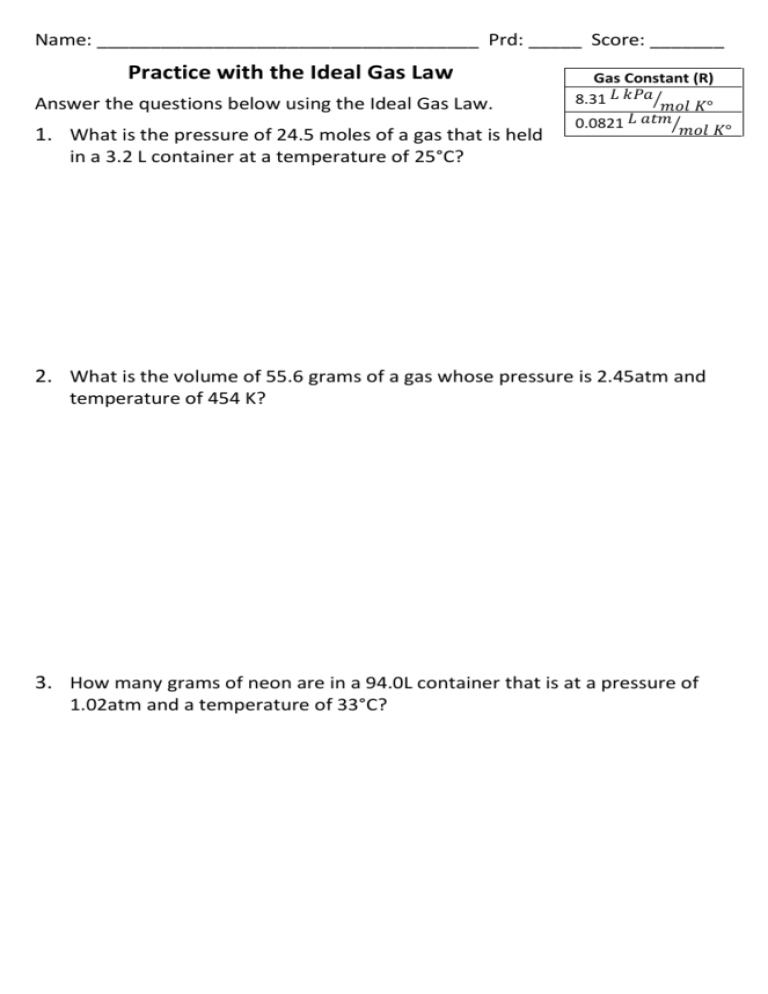
Name: ____________________________________ Prd: _____ Score: _______ Practice with the Ideal Gas Law Answer the questions below using the Ideal Gas Law. 1. What is the pressure of 24.5 moles of a gas that is held Gas Constant (R) 8.31 𝐿 𝑘𝑃𝑎⁄𝑚𝑜𝑙 𝐾° 0.0821 𝐿 𝑎𝑡𝑚⁄𝑚𝑜𝑙 𝐾° in a 3.2 L container at a temperature of 25°C? 2. What is the volume of 55.6 grams of a gas whose pressure is 2.45atm and temperature of 454 K? 3. How many grams of neon are in a 94.0L container that is at a pressure of 1.02atm and a temperature of 33°C? 4. If 56.8 g of carbon dioxide have been sitting in the same room all day in a 1.98 L container and you measure the pressure to be 1.72atm, what is the temperature of the room? 5. A weather balloon is inflated with 568g of helium gas and released. At an altitude of 2,560 ft, the pressure inside the balloon is 0.295atm, the temperature is -56.5°C. What is the volume of the balloon in liters? 6. A gas in an open container is heated from 25°C to 150°C. Before being heated there were 4.5 moles of gas in the container. a. As the gas is heated, the molecules of gas will move ( slower / faster ), collide with the walls of the container with a ( less / the same / more ) intensity and ( less / the same / more ) frequently. If the container was sealed, these factors would tend to (decrease / increase ) the pressure in the container, but because the container is open the number of gas molecules in the container will ( decrease / stay the same / increase ) while it being heated. b. Explain what happens to the number of moles of gas in the container as it is being heated. c. The Kelvin temperature of the gas before being heated was _______. The Kelvin temperature of the gas after being heated was _______. After being heated the temperature of the gas is _______ times greater. This means the number of moles in the container should be ______ times ( more / less ). Explain your reasoning below. d. Calculate the number of moles of gas that should remain in the container after being heated. Show your work below. 7. A container of oxygen was compressed from a volume of 15.7L at a pressure of 1.01atm to a volume of just 1.43L. The temperature and amount of gas remain constant. a. The volume of the container, decreased from ________ to _______. This means the volume of the container after being compressed is ______ the size of the larger container. Decreasing the volume of the container, ( decreases / increases ) the distance molecules have to travel between collisions with the walls, resulting in a ( lower / higher ) frequency of collisions and ( a decrease / an increase ) in pressure. b. Predict the final pressure in the container. Show your work below. 8. A gas is heated in an expandable container. If the starting volume of the gas was 34.09L and the temperature was 18.3°C, what is the final volume of the container when the temperature reaches 276°C? The amount of gas and pressure of the gas remain constant.
